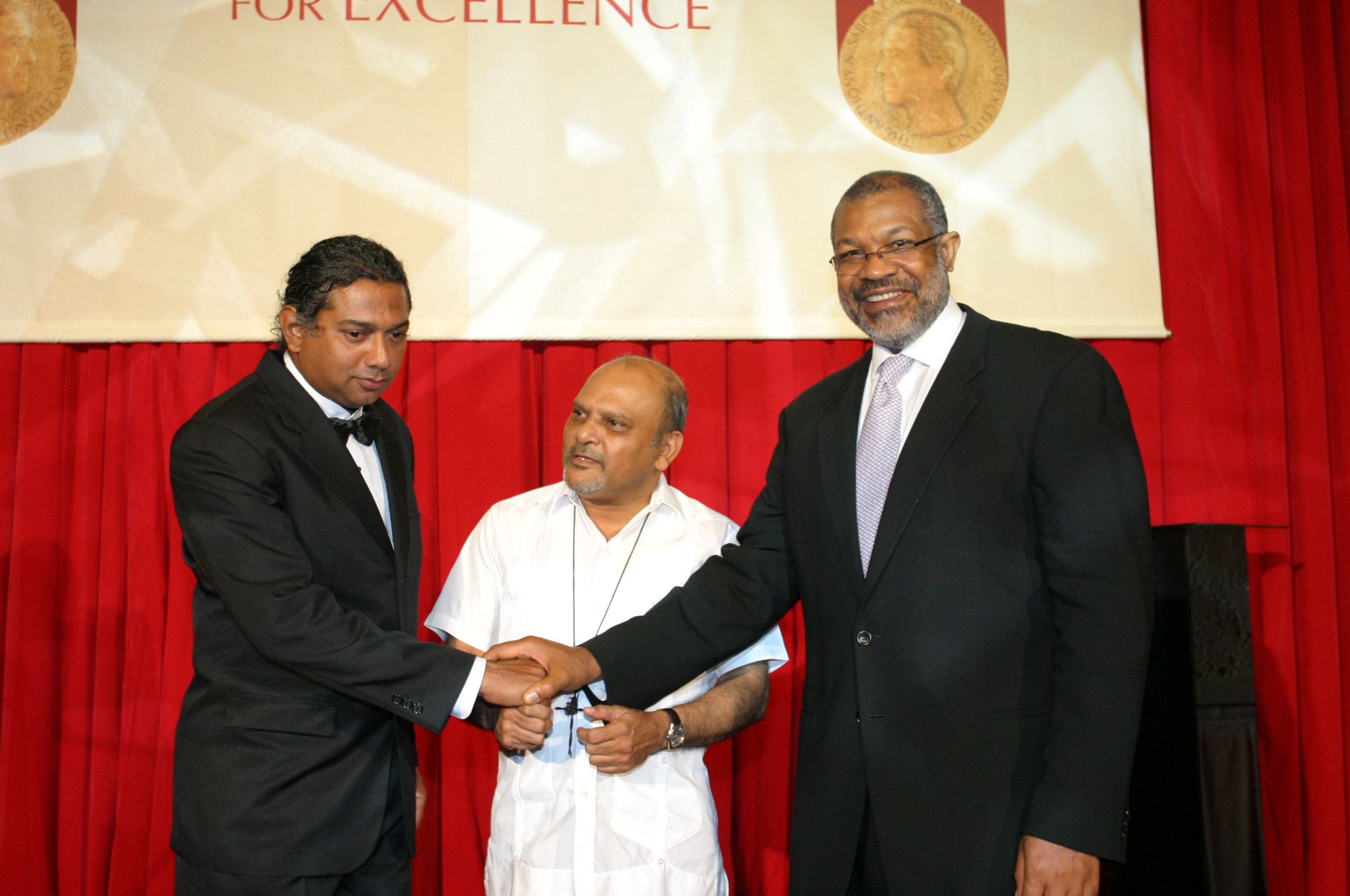Dr. Ramesar is an award-winning Caribbean filmmaker. He was born in 1963 in Tamale, Ghana, West Africa of Afro-Jamaican and Indo-Trinidadian parents. He has created approximately 120 films, mostly short experimental documentaries, many on the spiritual and cultural life of people in the Caribbean. His body of work is unlike any other that has been produced in the Anglophone Caribbean and is of the highest standards. He has undertaken the task of using cinematography as a tool to highlight the uniqueness of the Caribbean and its people.
Dr. Robert Yao Ramesar
Ramesar’s most significant contribution is that he has taken Caribbean cinema to the world under the rubric of an original aesthetic deemed “Caribbeing”. It is based on natural light and slow motion and explores the supernatural essence of being Caribbean with the sun as a centrifugal force. His aesthetic is directed at providing self-knowledge and from that knowledge self-love. He has pioneered the teaching of cinema at the tertiary level in Trinidad and Tobago and beyond.
He has mentored, taught and sparked the interest of many who may not have seen the film industry for the Caribbean as a viable option, particularly a film industry that highlights our own and show us as we are. His distinctive vision of Caribbean culture is increasingly gaining an international audience via the many invitations he gets to show his work at international film festivals.
Part of his vision is also to make film and expression accessible to all; “to enable young people to make their own films and tell our stories in the future”. His work has been broadcast to over 100 countries and screened in Africa, Asia, South and Central America, Eastern and Western Europe and throughout North America and the Caribbean, including multi-channel cable simulcasts.

He has received numerous indigenous and international awards for his work. Honours for his work include the Paul Robeson Awards (U.S.) for Best Film & Best Editing (1990) and Best Cinematography (1991); the Critics’ Choice Award at the Global Africa Film Festival (U.S) 1992; the Royal Bank/MATT awards for Best Television Series 1996; Best Editing, Best Supporting Video and Best Television Series 1997; Best Supporting Video 1998 (Trinidad); the Saraswatti Devi Award 2000; and Decibel Award 2002.
Ramesar’s credits in series television include the “She Woman” series produced for the U.N. Beijing Conference 1996, and simulcast live to the Caribbean region, and the award-winning “People” and “Routes” series. A recent collaboration with Nobel Laureate Derek Walcott spawned the production of “The Saddhu of Couva” and “The Coral”. He has recently produced the first Trilogy in the Caribbean “Sista God” which has been invited to make its world debut at one of the top International Film Festivals.
Ramesar’s theories on Caribbean filmmaking have been featured in numerous publications including his paper “Caribbeing: Cultural Imperatives and the Technology of Motion Picture Production” in Caribbean Quarterly Vol. 42, No 4., and “Caribbean Culture in the Digital Domain”, presented at Carifesta Symposia in St. Kitts/Nevis 2000. His work is the subject of “Filmed Portraits: an examination of themes and the pictorial techniques of Yao Ramesar, from his short film series ‘People’”, an 87-page work by Pamela Hosein, U.W.I, 1998. His work is also being examined in PhD theses by Marina Maxwell (UWI) and Gabriella Hezekiah (University of Toronto). Dr. Ramesar [B.A, M.F.A (Film Directing)] is 43 years old and is based in Trinidad. He is an outstanding exemplar of excellence in Caribbean arts and letters.


